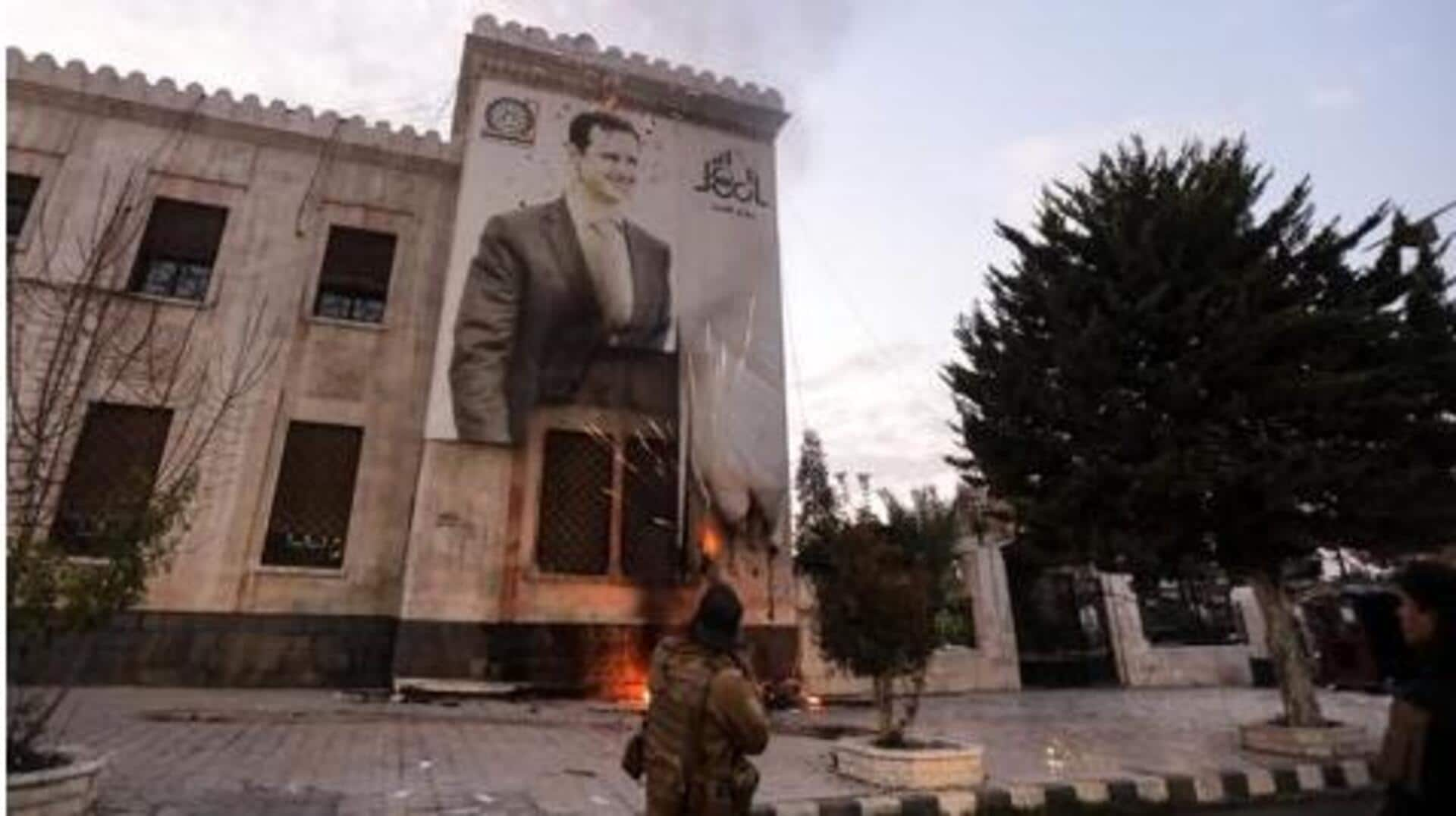
What next for ousted Syrian President Assad and his family
What's the story
Bashar al-Assad's presidency in Syria ended on Sunday, bringing an end to the Assad family's rule of over half a century. The Islamist militant group Hayat Tahrir-al Sham (HTS) has since formed a transitional government. After being ousted from power, Assad and his family have taken refuge in Russia, a key ally in Syria's civil war, which launched an air campaign in 2015 to support Assad's regime.
Asylum offer
Assad's arrival in Russia amid Ukraine conflict
This time, despite its historical backing of Assad, Russia couldn't stop the latest rebel offensive, as it is preoccupied with the Ukraine conflict. Russian state media reported Assad's arrival in Moscow and an asylum offer on "humanitarian grounds." However, Kremlin spokesperson Dmitry Peskov remained noncommittal about the asylum decision, saying, "I have nothing to tell you... right now."
Family connections
Assad family's ties to Moscow and potential UK return
The Assads have deep ties to Moscow, from real estate investments to their son Hafez's education. According to a 2019 Financial Times investigation, Assad's extended family bought at least 18 luxurious apartments in Moscow in order to keep tens of millions of euros out of Syria during the civil conflict. Meanwhile, Hafez, Assad's eldest son, is a PhD student in the city; a local newspaper recently reported on the 22-year-old's doctoral dissertation.
UK
Bashar's wife holds dual British-Syrian nationality
Bashar's wife, Asma al-Assad, who holds dual British-Syrian nationality, could also return to the United Kingdom. Asma was born and raised in west London to Syrian parents. She went to school and university in London before becoming an investment banker. The extended Assad family's wealth is estimated to be between $1 billion and $2 billion, but tracing it is difficult because their assets are "believed to be spread out...in numerous accounts, real estate portfolios, corporations, and offshore tax havens."
Crisis aftermath
Rebel offensive and humanitarian crisis in Syria
For half a century, the Assad family dominated Syria with an iron fist, with well-documented reports of mass incarceration, torture, extrajudicial killings, and crimes against their own people. The dictatorship collapsed on Sunday, ending 13 years of civil strife that had fragmented the country. Since then, Syrians seeking to erase Assad's legacy have plundered or destroyed several of his properties and those of his family members.
Legal actions
International calls for accountability and France's arrest warrant
"Syrians, for a very long time, were unable to do anything they like. This is the first time for me," Syrian cyclist Bassel Soufi told Reuters. The end of Assad's regime has also sparked calls for accountability from international organizations such as Amnesty International. The regime is accused of war crimes and crimes against humanity. France has also issued an arrest warrant for Assad under universal jurisdiction laws. However, extradition from Russia appears unlikely as it doesn't extradite its nationals.